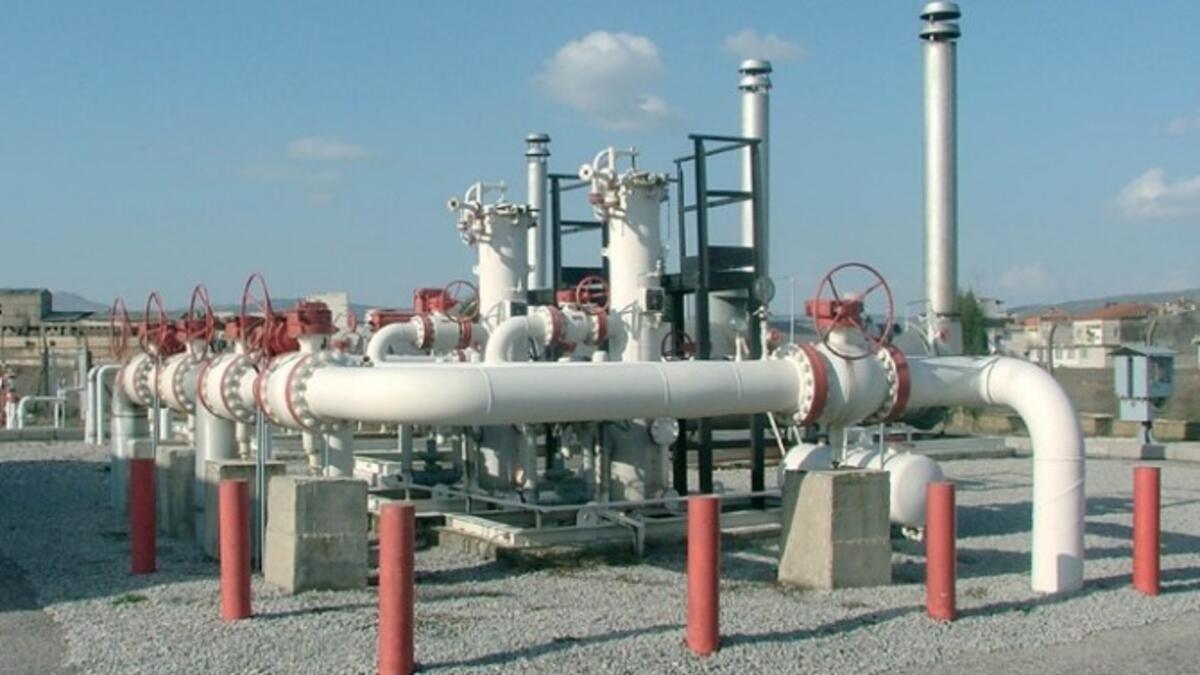
Turkey’s natural gas storage capacity will be increased from 4.7 billion cubic meters to 11 billion cubic meters by 2023, Energy and Natural Resources Minister Fatih Dönmez told parliament members on Dec. 7.
“In other words, we will be capable of storing nearly 20 percent of natural gas we consume in a year,” he said during a speech he delivered at the general assembly of the Turkish parliament.
“With natural gas infrastructure development efforts, daily flow capacity has been increased to 362 million cubic meters, which is 29 percent higher than our peak demand of national consumption at 280 million cubic meters,” he added.
Currently, Turkey’s national pipeline company Botaş has been operating a floating storage and regasification unit (FSRU) in the southern province of Hatay, a liquefied natural gas (LNG) terminal in the northwestern province of Tekirdağ and two underground natural gas storage facilities in Istanbul’s Silivri district and the Central Anatolian province of Aksaray.
While natural gas soared significantly on a global scale, the Turkish government has spent 150 billion Turkish Liras ($10.9 billion) to subsidize domestic energy prices, said Dönmez.
Botaş has kept natural gas price for households unchanged in November and December, while increasing prices for businesses and power stations.
Natural gas price for households has been steady at 1,488 Turkish Liras ($156.2) per 1,000 cubic meters. Botaş said on Dec. 3 that it had raised natural gas prices for industrial use and for electricity production by 20 percent.
Turkey imports around 45 billion cubic meters of natural per year paying approximately $12 billion to pipeline exporters Russia, Azerbaijan and İran, as well as LNG suppliers including Qatar, Nigeria, Algeria and the United States. Nearly a third of the country’s gas needs are met with LNG supplies.
Turkey’s annual electricity demand is expected to rise 8 percent this year, he added.
Turkey has taken 24,718 megawatts installed power capacity since 2017 and 74.2 percent of that capacity came from renewable sources, according to the minister’s remarks.
Hydropower has currently the largest renewable share capacity at almost 31.5 gigawatts, making up 30 percent of the country’s total installed capacity which stood at 99.05 gigawatts at the end of October 2021, according to the Turkish Electricity Transmission Company.
Wind is the second-largest renewable source in Turkey with around 10.3 gigawatts while solar follows with 7.6 gigawatts.
Along with other renewable installations, Turkey’s renewable capacity totals 52.5 gigawatts.
“Thus, our country has climbed up to the ranks of 12th in the world and 5th in Europe in terms of installed renewable energy capacity,” Dönmez said.
Turkey will start producing natural gas from its massive discovery of 540 billion cubic meters at Sakarya Gas Field in the Black Sea in 2023 as planned, he added.
On questions about Akkuyu Nuclear Power Plant, the minister said that the first reactor will start operating in 2023.
He noted that 442 nuclear reactors are active worldwide and 51 new ones are under construction.